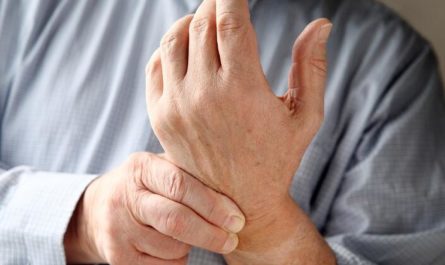Waking up with a headache can be a frustrating and unpleasant experience. Not only does it disrupt your morning routine, but it also sets the tone for the rest of the day. Headaches can vary in intensity and type, and understanding the underlying causes can help you find relief and prevent future occurrences. This comprehensive guide will discuss the 12 main causes of waking up with a headache with some effective treatments.

12 Causes of Wake Up With Headaches
There are different reasons why you may be suffering from a headache. Here are some common reasons why you are suffering:
1. Sleep Apnea: A Silent Saboteur
Sleep apnea, a condition characterized by interrupted breathing during sleep, can contribute to morning headaches.
When the airway is partially or completely blocked, the brain receives insufficient oxygen, leading to headaches upon awakening.
This condition often goes undiagnosed, but seeking medical attention and exploring treatment options can bring relief.
2. Tension Headaches: The Stress Culprit
One of the most common causes of morning headaches is tension. Stress, anxiety, and muscle tension can trigger headaches that persist throughout the night and greet you in the morning.
Identifying and managing stressors, practicing relaxation techniques, and adopting healthy coping mechanisms can help alleviate these headaches.
3. Dehydration: Quench Your Thirst, Soothe Your Head
Dehydration is a leading cause of morning headaches. During sleep, your body loses moisture through breathing and sweating.
When you wake up, replenishing your body with water can alleviate dehydration-induced headaches. Remember to drink an adequate amount of water throughout the day to stay properly hydrated.

4. Poor Sleep Environment: Setting the Stage for Headaches
An uncomfortable sleep environment can contribute to morning headaches. Factors such as an unsupportive pillow, an old mattress, or excessive noise and light can disrupt your sleep and leave you waking up with a headache.
Ensuring a conducive sleep environment with a comfortable mattress, supportive pillows, and a dark, quiet room can make a significant difference.
5. Sleep Bruxism: The Grind of Teeth and Headaches
Sleep bruxism, or teeth grinding during sleep, is a common condition that can lead to morning headaches. The clenching and grinding motion strain the jaw muscles, which can radiate pain to the head. Using a mouthguard or seeking dental treatment can help alleviate this issue.
6. Medication Overuse: When a Remedy Becomes the Problem
Ironically, overusing headache medications can cause rebound headaches upon waking up. When painkillers are used excessively or for prolonged periods, leading to headaches as the medication wears off. Following recommended dosage guidelines and seeking alternative treatments can break this cycle.
7. Sleep Disorders: Disrupting Rest, Causing Headaches
Various sleep disorders, such as insomnia or restless legs syndrome (RLS), can interfere with the quality of your sleep and contribute to morning headaches. Treating the underlying sleep disorder through lifestyle changes or medical interventions can improve your sleep and headache symptoms.
8. Sinusitis: A Sinus Headache in the Morning
Sinusitis, inflammation of the sinuses, can cause morning headaches. When your sinuses are blocked or infected, pressure builds up, resulting in pain and discomfort. Seeking appropriate medical treatment, including nasal decongestants and saline rinses, can alleviate sinus-related headaches.
9. Caffeine Withdrawal: A Jolt to the Head
If you’re accustomed to consuming caffeine regularly, abruptly stopping or reducing your intake can trigger withdrawal symptoms, including headaches. Gradually reducing caffeine consumption or incorporating a morning cup of coffee can help mitigate these headaches.
10. Poor Posture: Straighten Up for a Headache-Free Morning
Poor posture during sleep can strain the neck and upper back muscles, leading to tension headaches upon waking. Proper pillows and mattresses that support your spine’s natural alignment and practicing good posture throughout the day can help prevent these headaches.
11. Eye Strain: When Vision Takes Its Toll
Staring at screens for prolonged periods, reading in poor lighting, or having an uncorrected vision can strain your eyes and contribute to morning headaches.
Taking regular breaks, adjusting screen brightness, wearing corrective lenses, or seeking an eye exam can alleviate eye strain-related headaches.
12. Sleep Disorders: Restless Nights, Aching Mornings
Certain sleep disorders, such as sleep apnea or insomnia, can disrupt the quality of your sleep and lead to morning headaches. Seeking medical evaluation and appropriate treatment can help improve your sleep and alleviate headaches.

Lifestyle Adjustments to Alleviate Morning Headaches
1. Maintain a Consistent Sleep Schedule
A regular sleep routine can significantly reduce the likelihood of waking up with a headache. Aim to go to bed and wake up every day, even on weekends.
This practice helps regulate your body’s internal clock, promoting more restful sleep and minimizing the chances of morning headaches.
2. Create a Relaxing Sleep Environment
Your sleep environment plays a crucial role in the quality of your sleep. Ensure your bedroom is cool, quiet, and dark.
Consider using earplugs, blackout curtains, or white noise machines to create a serene atmosphere that promotes uninterrupted sleep and helps prevent morning headaches.
3. Stay Hydrated Throughout the Day
Dehydration can contribute to morning headaches, so staying adequately hydrated throughout the day is essential. Aim to drink at least eight glasses of water daily and limit your intake of dehydrating beverages like alcohol and caffeinated drinks.
Remember to hydrate before bedtime to reduce the chances of waking up with a headache.
4. Manage Stress Levels
Chronic stress can lead to tension headaches, making mornings particularly uncomfortable. Practice stress management techniques such as deep breathing exercises, meditation, or engaging in hobbies that help you relax.
Additionally, consider incorporating regular physical activity into your routine, as exercise releases endorphins, which can alleviate stress and promote overall well-being.
Home Remedies for Morning Headaches
5. Apply a Cold or Warm Compress
A cold or warm compress on your forehead or neck can quickly relieve morning headaches. Experiment with both options to see which works best for you. The cold compress helps constrict blood vessels, while the warm compress relaxes tense muscles, easing the pain.
6. Practice Scalp and Neck Massages
Gentle massages targeting your scalp and neck can help alleviate tension and promote relaxation, reducing the intensity of morning headaches. Consider using essential oils like lavender or peppermint to enhance the soothing effect of the massage.
7. Stay Mindful of Your Sleep Posture
Improper sleep posture can strain your neck and head muscles, leading to morning headaches. Opt for a supportive pillow that aligns your head and neck with your spine.
Experiment with different pillow types, such as memory foam or cervical pillows, to find the one that provides optimal comfort and reduces the frequency of morning headaches.
Medical Interventions for Morning Headaches
8. Over-the-Counter Pain Relievers
Over-the-counter pain relievers such as ibuprofen or acetaminophen can provide temporary relief for occasional morning headaches. However, following the recommended dosage is crucial, and consult your healthcare provider if the headaches persist or worsen.
9. Prescription Medications
If your morning headaches are chronic or severe, your doctor may prescribe medications to help manage the pain.
These medications can include triptans, beta-blockers, or antidepressants, depending on the underlying cause of your headaches. Always follow your healthcare provider’s instructions and discuss any concerns or side effects you may experience.
10. Explore Alternative Therapies
In some cases, alternative therapies like acupuncture, chiropractic adjustments, or biofeedback can relieve morning headaches. These treatments focus on addressing imbalances within the body and promoting overall well-being. Consult with a qualified practitioner to determine which therapy suits you.
FAQs
1. How can I prevent morning headaches caused by dehydration?
To prevent dehydration-induced headaches, drink adequate water throughout the day and keep a glass of water by your bedside to hydrate upon waking.
2. What is the best way to treat sleep apnea-related morning headaches?
Treating sleep apnea often involves using a continuous positive airway pressure (CPAP) machine, which delivers a steady stream of air to keep the airway open during sleep. Consulting with a healthcare professional is crucial for proper diagnosis and treatment.
3. Are morning headaches a sign of a serious underlying condition?
While morning headaches are often benign, they can sometimes indicate an underlying health issue. If your headaches persist, worsen, or are accompanied by other concerning symptoms, it is important to consult with a healthcare professional for an accurate diagnosis.
4. How can I improve my sleep environment and prevent morning headaches?
To create a conducive sleep environment, ensure a comfortable mattress, supportive pillows, a dark and quiet room, and a cool temperature. Eliminating noise and light disruptions can significantly improve the quality of your sleep.
5. Can certain foods trigger morning headaches?
Yes, certain foods like processed meats, aged cheeses, chocolate, and artificial sweeteners have been known to trigger headaches in some individuals. Keeping a food diary can help identify potential triggers and allow you to make necessary dietary adjustments.
6. When should I seek medical attention for my morning headaches?
It’s advisable to consult a healthcare professional if your morning headaches are frequent, severe, or significantly impact your daily life. They can evaluate your symptoms, conduct necessary tests, and recommend appropriate treatment options.






